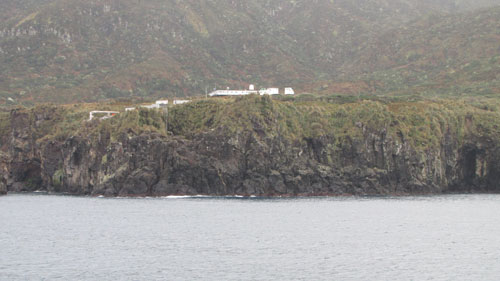Gough and Inaccessible Islands in the South Atlantic form part of the UK Overseas Territory of St Helena, Ascension and Tristan da Cunha in the South Atlantic. Together the two island nature reserves (including their 12-nautical mile territorial waters) form a single World Heritage Site, as well as being individual Ramsar Wetlands of International Importance.
Between them the two islands support six ACAP-listed species, including the Critically Endangered Tristan Albatross Diomedea dabbenena and the Vulnerable Spectacled Petrel Procellaria conspicillata, both of which are endemic. They also hold a large proportion of the breeding population of the Atlantic Yellow-nosed Albatross Thalassarche chlororhynchos, which is endemic to the Tristan da Cunha Group.

Separate management plans were adopted for Gough in 1993 and Inaccessible in 2001. Following a grant to the Royal Society for the Protection of Seabirds (RSPB) from the UK's Overseas Territories Environment Fund (OTEP) a series of workshops are being held to help draft a new single management plan for the World Heritage Site for the five-year period, 2010-2015.
The first two workshops were held on Tristan da Cunha during August 2009, hosted by the island's Conservation Department. The third workshop will be held in Cape Town South Africa on 15 October under the auspices of the RSPB and will be hosted by the South African National Antarctic Programme of the Department of Environmental Affairs. This workshop will be attended by several members of T-BAG (the Tristan Biodiversity Advisory Group).
The final workshop is to be held later in the year at the RSPB Headquarters at Sandy, United Kingdom, with further members of T-BAG in attendance. The workshops will also work towards producing a 25-50-year vision for the World Heritage Site.
John Cooper, ACAP Information Officer, 14 October 2009

 English
English  Français
Français  Español
Español